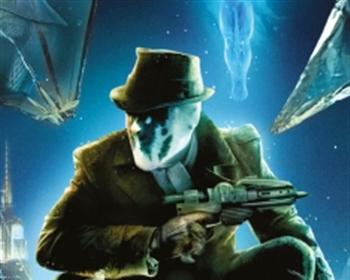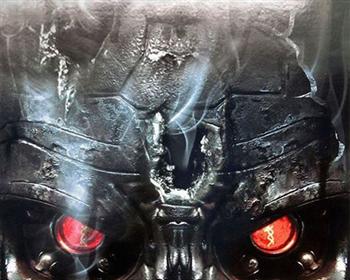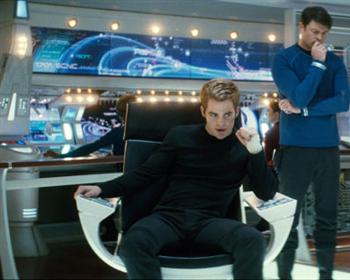The Aviator reunites Leonardo DiCaprio with director
Martin Scorcese in this all-American biopic of entrepreneur Howard
Hughes. Pilot, Lothario, engineer, film maker, neurotic, businessman,
visionary and all-round wacky maverick, Hughes was anything but
ordinary. Empowered at a young age by his deceased parents’ financial
legacy and imbued with a quasi-fetishistic interest in planes, the
youthful Hughes would quickly set to work on completing his first epic
movie, Hell’s Angels, a drama borne of the skies that would set
the Hughes stall out immediately: if it can be conceived of, Hughes
will achieve it, even if it necessitates the type of fastidious
attention to detail only bettered by Rudolf Hoess. But the implacably
ambitious Hughes wasn’t just about films. An aviator more than anything
else, he designed planes for the military, built planes for the public
and even recorded the fastest-ever round-the-world flight. But success
often begets enemies. Even more so when you are euphemistically branded
a ‘freethinker’. (A.k.a. ‘freakshow’.) And success, of course, often
comes at a personal price. Fighting PanAm’s attempts to shut down his
newly-acquired TWA airline on the one hand and struggling to come to
terms with increasingly frequent bouts of mental instability on the
other, Hughes, the erstwhile heroic, all-American pioneer, eventually
finds himself having to captain his most challenging of missions – that
of defeating potentially ruinous senatorial proceedings brought against
him by a corrupt congressman under the paid auspices of an envious
PanAm.
The Howard Hughes story which Scorcese recounts is
certainly an interesting one, and one that illuminates a rare mind. But
then, to the right person, ventilation ducts or Manchurian horsehair
fiddles are interesting. The jury’s out as to whether The Aviator will be interesting in a popular context. The overtures about The Aviator
garnering Scorcese his first Oscar are understandable. Hughes’ life was
both extraordinary and chequered, and having to account for the main
features of such a remarkable life in the one movie is no mean
undertaking; Scorcese pulls it off, however, with aplomb and cohesion.
The film’s sweep is correspondingly impressive and the scene-building
well-constructed. Actingwise, too, there’s plenty on offer. DiCaprio
gets to grips with a towering role admirably, and realistically conveys
the onset of Hughes’ mental dysfunction, whilst Cate Blanchett, as
Katharine Hepburn, arguably steels the show. And, in smaller parts,
Alec Baldwin as Hughes’ bête noire at PanAm, Juan Trippe, is
convincingly autocratic, whilst John C. Reilly, as Hughes’ thankless
accountant-cum-gofer, is similarly dependable. But for all this, the
film lacks a certain something. Specifically, the film lacks real
sparkle. And to a British audience largely ignorant of who Howard
Hughes even was, then it’s only to be guessed whether anyone will
really care for his character. Certainly when the movie is almost three
hours in length.
All in all, The Aviator is a worthy film, a
solid movie, a durable picture, but not one ever likely to galvanise an
army of anticipant cinema-goers.


